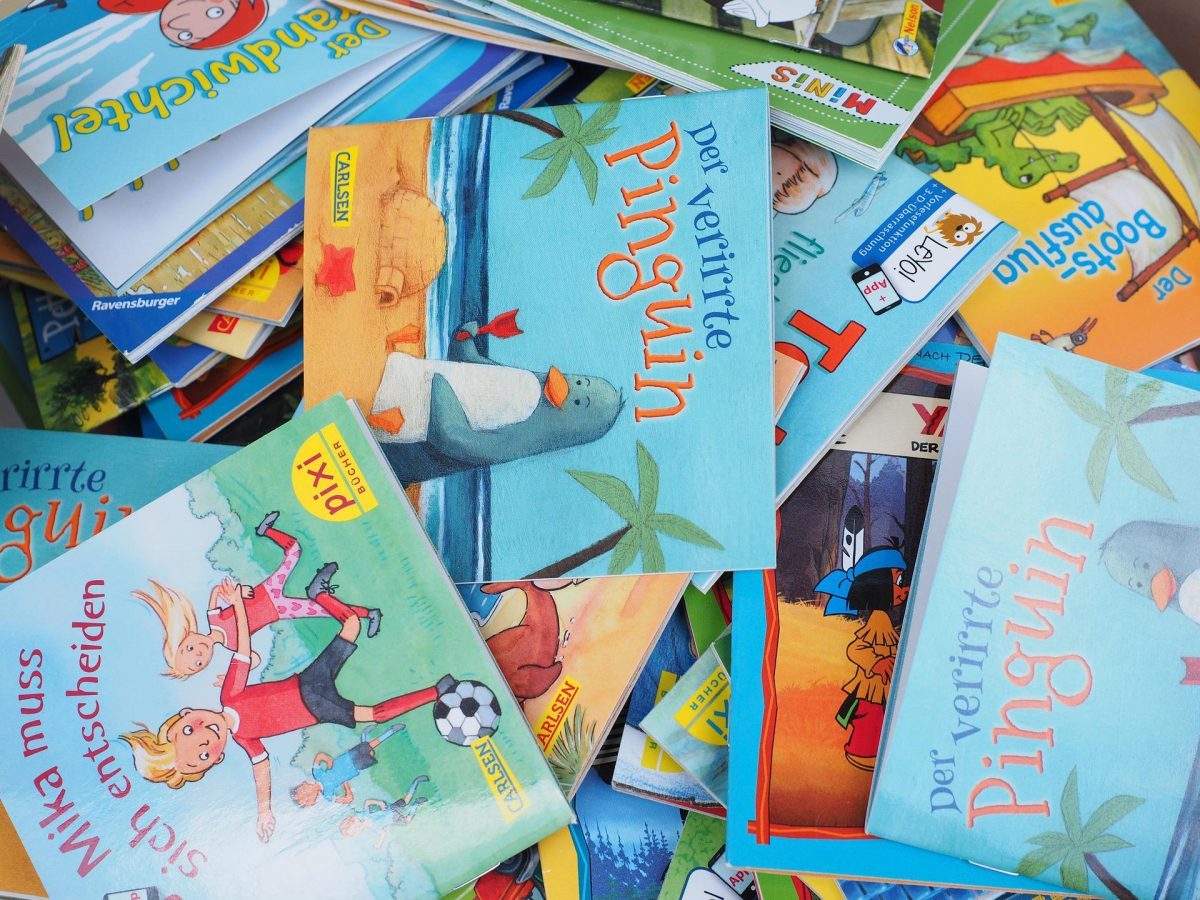How To P.I.C.K. The Right Book

Want to know a secret? Helping children learn how to choose the right book to read is simple! It’s all about one little word that they can keep in their back pocket whenever they’re in the library, at the classroom reading center, or at the book fair. All they need to remember is P.I.C.K.
P.I.C.K. stands for Purpose, Interest, Comprehension, and Know the Words.
P=Purpose:
Why are you looking for a book in the first place? Is it totally a free choice, or is there a reason for reading?
In order to help children determine their reading purpose, try asking them:
- Are you reading for pleasure?
- Are you trying to learn something?
- Is the book going to be read silently or aloud?
- Who is the audience?
In most cases, the purpose for reading can be found with a quick answer to any of those questions.
I=Interest:
When choosing a book, it needs to be interesting. With the countless number of books on the shelves today, there is definitely a book out there for everyone! If a child is interested in cars, no need to stop at fictional stories about cars, but books about racetracks, car construction, the history of racing, racecar drivers, or even car design. If magic is more of their interest, look for books about magic shows, magic tricks, and magicians, and even books about science and invention. If time is on the short supply, children can determine interest by:
- Looking at the front cover
- Flip through pages to find photos or illustrations
- Reading the back cover
- Reading the chapter titles
C=Comprehend:
When selecting a book, is it one that the child can comprehend? Can they understand what they’re reading? Is the book appropriate for their reading level or abilities? Don’t underestimate children as they are often more aware of their reading “level” than we may think, so it’s okay to remind them that if they’re choosing a book to read independently and they read at a Level A (for example), that they maybe shouldn’t pick a book from the Level M basket.
If the books aren’t labelled by level, no need to worry, they can quickly assess the book for themselves by opening to a page and seeing if they are able to understand what they read. Children can determine comprehension by asking themselves:
- Did I understand what I just read?
- Do I remember what I read?
- Was I able to read most of the words?
K=Know the Words:
When reading a book, readers should be able to decode and understand the majority of the words on the page. A little trick to help kids remember is the “Five Finger Rule”. The “Five Finger Rule” outlines a general idea of how many words the reader should be able to read on each page.
- 0-1 unknown words= the book is too easy
- 2-3 unknown words= the book is just right
- 4-5 unknown words= the book is too difficult
Knowing the P.I.C.K. trick is empowering for kids as they want to know how to choose books that are the best fit for them, books that are enjoyable, fun, and exciting. This technique is all about giving kids the right tools to be strong, successful, and confident readers. If you’re looking for a few more points to add to P.I.C.K. you can:
Read a Family Favorite: remember what your favorite book was a child and pass it on to your children. If you both have read the same book, then this can create a dialogue about what they liked about it and can share their thoughts. This is a fun way to get to know your family better and they’ll add another book to their library!
Ask an Expert: don’t forget about your local library! It’s a great place to find books that you’ll love, and you don’t have to search by yourself. Tell the librarian about your interests—sports, history, music, or any other interests—and any other books that you like; the librarian can then help you find other books you are sure to love! And as a teacher, don’t be afraid to ask us for suggestions too!
Spread the Love of Reading: share the love of reading and books with some friends and trade favorite books! It’s always fun and interesting to see what friends are reading, and if you have a few friends who aren’t necessarily “bookworms”, you can encourage them to read and share books and authors you like!
Remember, every child learns at their own pace, so it’s best to make this process encouraging and enjoyable. By reading daily, having fun with activities, and even having your child pick their own books as their skills grow, will instill a love of reading and set them up for the ultimate reading success.
Teaching children is not a simple task, and if after reading these steps you’re left feeling a little overwhelmed, no need to worry, I have a solution for that too! Click the link below to see how Sarah Shepard, a fellow teacher, has taught over 35,000 children how to read with her program Reading Head Start!